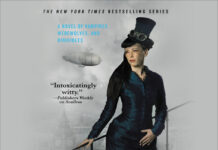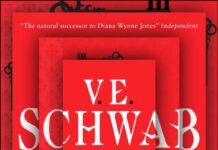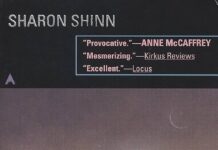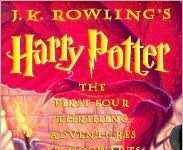In a world where parenting philosophies often spark fierce debate, Amy Chua’s Battle Hymn of the Tiger mother stands out as a provocative manifesto that challenges conventional notions of nurturing and discipline. This book review seeks to unpack Chua’s unapologetic portrayal of strict Chinese parenting, exploring the nuances behind the fierce determination and high expectations that have both captivated and polarized readers worldwide. Rather than taking sides, this balanced examination delves into the cultural context, psychological implications, and broader conversations ignited by Chua’s narrative-inviting readers to reflect on the complex tapestry of love, ambition, and identity woven throughout her story.
The Cultural Context Behind Battle Hymn of the Tiger Mother and Its Impact on Parenting Conversations
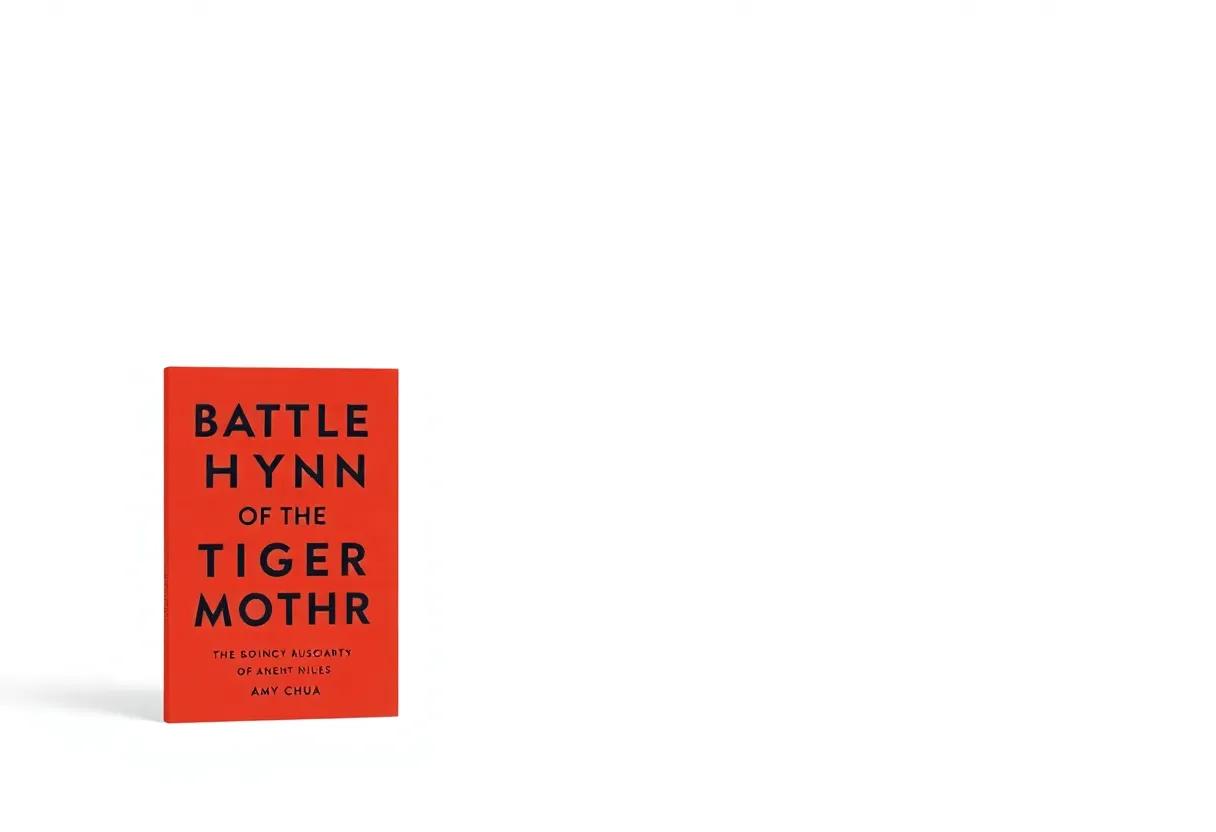
The global dialog about parenting underwent a significant shift when Amy Chua’s narrative introduced the so-called “Tiger Mother” archetype. Rooted deeply in Confucian values emphasizing discipline,respect,and exceptional academic achievement,this approach contrasts sharply with many Western ideals that prioritize self-expression and emotional freedom. The book sparked heated debates by challenging the softer, more permissive parenting styles prevalent in the West, forcing readers to confront cultural assumptions about success, obedience, and what it means to raise a “well-rounded” child. In essence, Chua’s story served as a cultural mirror, reflecting divergent priorities that shape upbringing across different societies.
The impact on parenting conversations has been both profound and multifaceted. On one hand, it ignited a wave of introspection among parents eager to weigh the benefits of strict discipline against potential emotional costs. On the other, it invigorated discussions around the balance of structure and warmth, the role of academic pressure, and the evolving definitions of success. Below is a snapshot of some recurring themes debated in the wake of the book’s release, captured in a concise format:
Best-Selling Books in This Category
| Theme | Perspectives |
|---|---|
| Discipline | Rigid enforcement vs. adaptability |
| Emotional Well-being | Emphasis on resilience vs. sensitivity |
| Academic Pressure | High expectations vs. holistic growth |
| Cultural Identity | Preservation vs. adaptation |
Examining the Core Principles of Amy Chua’s Strict Parenting Style and Their Psychological Effects on Children

Amy Chua’s approach to parenting is anchored in a set of core principles that emphasize discipline, high expectations, and relentless pursuit of excellence. Central to her method is the belief that children should prioritize hard work and mastery over casual enjoyment or praise. This often involves strict regimens such as rigorous practice schedules and limited recreational activities, reflecting a worldview where success is the natural reward of perseverance and obedience. Chua’s philosophy rejects the notion of coddling children and instead promotes resilience through demanding standards and direct criticism when those standards are not met. These principles are often summarized by three pillars:
- Unwavering High expectations: Setting formidable goals that push children beyond comfort zones.
- Strict discipline: Enforcing consistent rules and consequences to cultivate self-control.
- Limited praise: Prioritizing achievement over encouragement to build humility and motivation.
Psychologically, this stringent framework can manifest in varied ways within children’s development. while some may internalize the values of hard work and persistence, others might experience increased anxiety, self-doubt, or strained family dynamics. Studies highlight that such parenting styles can enhance performance yet simultaneously elevate risks of stress-related challenges. The table below offers a simplified overview of potential psychological effects discovered in research contrasting strict parenting with more permissive styles:
| Impact | Strict Parenting | Permissive Parenting |
|---|---|---|
| Academic Achievement | High | Variable |
| Self-Esteem | Mixed (often low) | Generally high |
| Emotional Regulation | Developed but under pressure | Developed with more support |
| Parent-Child Relationship | Strained | Warm |
Balancing Discipline and Affection How Chua’s Methods challenge Contemporary Parenting Norms
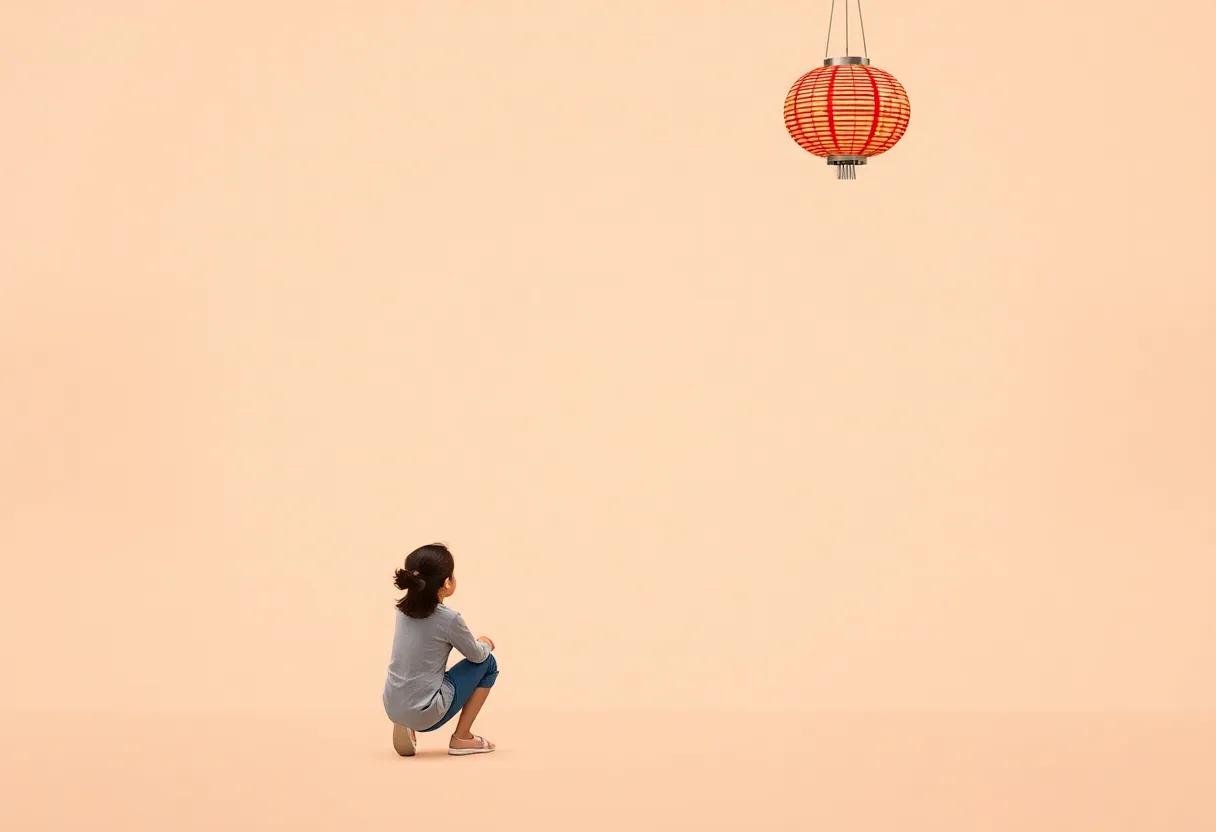
Amy Chua’s parenting philosophy sparks vigorous debate precisely because it defies the comfortable middle ground modern parents often seek between nurturing and strictness. Her unapologetic prioritization of rigorous discipline over permissiveness challenges the prevailing emphasis on boosting children’s self-esteem through unconditional praise. Yet,this toughness is not devoid of love; rather,it is indeed an expression of a different kind of affection-one rooted in high expectations and the belief that excellence emerges from structured effort. This fusion forces readers to reconsider assumptions about what it means to be a “good” parent in an era that largely celebrates emotional warmth and flexibility.
The tension between control and care in Chua’s methods can be unpacked through a simple framework that contrasts traditional Western parenting tenets with her approach:
- Western Norm: Encourage independence and emotional expression to build confidence.
- Chua’s Approach: Instill discipline and resilience through rigorous standards to cultivate success.
- Shared Goal: Prepare children to navigate real-world challenges, albeit by vastly different means.
| Parenting Aspect | Contemporary Norm | chua’s Method |
|---|---|---|
| Discipline | Flexible, occasional correction | Strict, consistent enforcement |
| Affection | Open verbal praise | Tough love, implicit care |
| Goals | Emotional well-being | Academic and personal mastery |
Ultimately, Chua’s style prompts a broader conversation about the cultural values that underpin parenting choices, reminding us that discipline and affection need not be mutually exclusive but rather different expressions of devotion shaped by context and belief.
Unpacking Controversial Moments in the Book and Their Reflection on Real Family Dynamics

At the heart of this narrative lie moments that sparked widespread debate, challenging conventional perceptions of motherhood and discipline. Amy Chua’s unapologetic advocacy for strict parenting methodologies, such as demanding relentless hours of piano practice and enforcing academic excellence, raises questions about the boundaries between dedication and pressure. These instances reflect a cultural crossroads where traditional expectations clash with modern sensibilities, illustrating how family dynamics are rarely black-and-white. What some perceive as harshness, others view as expressions of deep investment in a child’s success and self-discipline, echoing longstanding cultural values that prioritize perseverance and sacrifice.
Examining these controversial moments reveals patterns common in many households, irrespective of background. The push-pull of love and authority frequently enough creates tension but also fosters growth, with children navigating complex emotional landscapes shaped by their parents’ intentions and societal norms. The following table summarizes core themes evident in both Chua’s approach and real-world family dynamics:
| theme | Chua’s Outlook | Common Family reflection |
|---|---|---|
| Discipline | Non-negotiable, rigorous routines | Balancing firmness with warmth |
| Success | measured by achievement and skill | Diverse definitions beyond academics |
| Emotional Expression | Reserved, focus on results | Varies widely, often more open |
| Parental Intent | High expectations rooted in love | Intentions sometimes misunderstood |
This comparison highlights the delicate balance parents strike between pushing for excellence and nurturing emotional well-being. Ultimately, these moments invite readers to reflect on how cultural narratives shape parenting philosophies and how families worldwide negotiate the complexity of raising children in an ever-evolving social landscape.
How Battle Hymn of the Tiger Mother Navigates Expectations of success in Western and Eastern Societies

Amy Chua’s narrative walks a delicate tightrope between two vastly different cultural landscapes, where the definition of success carries distinct weights and expectations. In Western societies, success is frequently enough framed by individualism and personal fulfillment, encouraging children to pursue passions and develop a broad range of social and creative skills. Contrastingly, eastern societies-as portrayed through Chua’s lens-emphasize rigorous discipline, academic excellence, and obedience as hallmarks of success, reflecting deep-rooted Confucian values. This duality creates a friction where the Tiger Mother’s method appears both as an unwavering commitment to high standards and, simultaneously, a challenge to Western ideals of parenting freedom. Her story reveals how the desire for achievement is not merely about outcomes but is intrinsically linked to cultural identity and communal expectations.
The tensions between these societal expectations can be outlined in how each culture prioritizes certain virtues and approaches to childhood development:
- Western Societies: Creativity, emotional independence, self-expression, and balanced lifestyles
- Eastern Societies: Respect for authority, discipline, perseverance, and measurable achievements
| Aspect | Western Approach | eastern Approach |
|---|---|---|
| Education | Exploration and creativity | Mastery and memorization |
| Parenting Style | Encouraging autonomy | Demanding obedience |
| Success Metric | Happiness & personal goals | Family honor & excellence |
The Role of Academic and Musical Excellence in Shaping the Tiger Mother Philosophy
At the heart of this parenting blueprint lies an unwavering commitment to academic and musical prowess, viewed not merely as achievements but as vital pillars for character development. For proponents of this approach, excellence in these fields represents discipline, focus, and perseverance – qualities believed to forge resilience in children. Musical mastery, often piano performance, is emphasized alongside top grades, symbolizing a holistic cultivation of both intellectual sharpness and emotional discipline. This dual pursuit is framed not as pressure, but as an invitation to engage deeply with challenges and embrace the rigor of consistent effort.
Such prioritization manifests in daily routines heavily structured around practice and study, where milestones serve as markers of progress and motivation. The philosophy champions values like:
- Uncompromising standards for both academic tests and musical recitals
- Time management skills honed through regimented schedules
- Emotional resilience developed by overcoming setbacks and failures
These elements combine to create an environment where excellence is expected and normalized, shaping children into individuals who are prepared to navigate competitive arenas with confidence and skill.
| Focus Area | Core Skill | Outcome |
|---|---|---|
| Academics | critical thinking | Problem Solving |
| Music | Fine Motor Skills | Discipline & Patience |
| Routine | Time Management | Consistency |
Critiques and Defenses of Chua’s Approach From Experts in Child Development and Education
Experts in child development have offered a spectrum of responses to Amy Chua’s assertive parenting style. Critics often point out that her strict, highly structured approach can potentially stifle emotional growth and creativity. Many psychologists emphasize the importance of balance and flexibility, warning that excessive pressure might lead to anxiety or strained parent-child relationships. As an example, Dr. Lisa Morgan, a child psychologist, notes, “While discipline and high expectations are valuable, the emotional well-being of the child should never be compromised in the process.” These viewpoints argue that emotional intelligence and resilience are best nurtured through supportive, rather than authoritarian, parenting tactics.
Conversely, defenders of Chua’s method highlight the benefits of fostering strong work ethics and discipline from an early age. Some educators praise the clear boundaries and expectations as foundations for academic and personal success. They argue that chua’s unapologetic style captures cultural values emphasizing achievement, perseverance, and excellence. A few specialists even suggest that a degree of tough love, when paired with genuine care, can cultivate uniquely driven and disciplined individuals. Below is a comparative overview of common critiques and defenses:
| Critiques | Defenses |
|---|---|
| Risk of emotional suppression | Promotes resilience and discipline |
| Potential to create anxiety and low self-esteem | Encourages high achievement and focus |
| Lack of flexibility in parenting | Clear expectations can foster security |
| May overlook individual child needs | Instills cultural values of perseverance |
Practical Takeaways for Parents Seeking Structure Without Sacrificing Emotional Connection
Striking a harmony between firm structure and deep emotional connection is no small feat, yet it’s entirely possible when parents embrace intentional strategies that honor both discipline and warmth. Start by setting clear, consistent boundaries that provide children with a reliable framework, while simultaneously encouraging open dialogue about feelings and experiences. this creates a safe harbor where expectations are clear, but children feel heard and valued-nurturing their confidence alongside their sense of obligation.
Implementing daily rituals can be transformative, allowing families to build patterns that foster connection without rigidity. Consider integrating simple practices such as shared meals without devices, weekly check-ins to discuss successes and struggles, or collaborative goal-setting sessions.Below is a quick reference table of actionable balance points to inspire mindful parenting routines:
| Structure Element | Emotional Connection Strategy |
|---|---|
| Set clear expectations | Invite feedback and encourage questions |
| Use consistent consequences | explain reasoning with empathy |
| Create a homework routine | Celebrate small achievements together |
| Define tech usage rules | Engage in offline family activities |
Remember: the goal is not perfection but progress.When parents balance firm guidelines with open-hearted dialogue, children can thrive in an environment that respects their individuality and pushes them towards growth with love.
The Influence of Cultural Identity and Heritage in Shaping Amy Chua’s Parenting Manifesto
Amy Chua’s parenting philosophy is deeply interwoven with her rich cultural background, reflecting a blend of Chinese and Western values that shape her manifesto’s core principles. Raised in a household that prized academic excellence, discipline, and respect, chua’s approach mirrors traditional Chinese cultural emphases on diligence, family honor, and perseverance. These values clash and converge intriguingly with Western ideals of individualism and self-expression, presenting a parenting model that aims to produce not only talented children but also resilient and conscientious individuals. The synthesis of her heritage and personal experience offers insight into how cultural identity acts as both a compass and a constraint in defining parenting expectations.
To better understand this dynamic, consider the following elements that underpin her manifesto:
- Emphasis on Mastery: Rooted in East Asian traditions where excellence is non-negotiable.
- Collective Family Success: Individual achievement contributes to collective pride.
- Strict Authority: Parental control is seen as a form of care and guidance.
- Western Push for Autonomy: Balancing cultural roots with modern, liberal parenting ideas.
| Cultural Aspect | Chinese Influence | western Influence |
|---|---|---|
| Parenting Goal | Academic & Personal Excellence | Individual Happiness & Autonomy |
| Discipline | Strict & Authoritative | Flexible & Encouraging |
| Emotional Expression | Reserved & Indirect | Open & Supportive |
| Family’s Role | Central & Interconnected | supportive but peripheral |
Lessons on Resilience and Motivation Drawn from the Tiger Mother Approach in Real-life Scenarios
Resilience, as portrayed through the Tiger Mother philosophy, is less about unyielding toughness and more about cultivating a mindset that embraces failure as a stepping stone. in everyday life,this translates to recognizing setbacks not as dead ends but as critical feedback loops that encourage growth. Real-life accounts from families inspired by this approach reveal that persistence becomes second nature when high expectations are paired with clear goals and consistent support. Even in moments of frustration,children learns to develop self-discipline and a tenacity that fuels their motivation to keep pushing forward,understanding that mastery requires endurance.
Motivation under this regimen often blossoms from a structured environment that blends challenge with opportunity.Parents and mentors who adopt these principles frequently illustrate how setting aspiring yet reachable standards can ignite ambition without quashing individuality. Consider the common elements observed in success stories:
- Accountability: Clear expectations create a framework where progress is measurable and self-reflection is encouraged.
- Practice with Purpose: Repetitive effort is not mindless but focused and goal-driven.
- Constructive Criticism: Feedback is direct but aimed at improvement rather than punishment.
- Emotional Support: Encouragement underlies discipline, fostering confidence over fear.
| Tiger Mother Trait | Real-Life Outcome |
|---|---|
| Demanding Excellence | High achievement under pressure |
| Unwavering Expectations | Resilience in facing challenges |
| Emphasis on Practice | Mastery through repetition |
| Balanced support | Sustained motivation and confidence |
Recommendations for Readers on When and How to Adapt chua’s Methods to Their Own Families
Every family operates on a unique rhythm, shaped by culture, values, and individual personalities. Rather of adopting Amy Chua’s methods wholesale, consider blending her emphasis on discipline and high expectations with your family’s temperament and emotional needs. Focus on balance: encourage academic excellence and skill mastery, but recognize the importance of nurturing creativity and emotional intelligence. Adapt strict routines by setting clear, achievable goals paired with loving support, rather than harsh criticism. This approach helps maintain motivation without stifling a child’s natural curiosity or self-esteem.
It’s also crucial to differentiate between firm guidance and authoritarian control. Here’s a simple framework to help decide wich aspects may suit your household best:
| Aspect | adapt if… | Rethink if… |
|---|---|---|
| Strict Schedule | Your child thrives with routine | Your child shows stress or burnout signs |
| High Academic Expectations | Your child is motivated by challenges | Your child struggles and feels discouraged |
| Demand for Excellence | It comes with encouragement and praise | It leads to fear of failure or anxiety |
Ultimately, adapting Chua’s methods should be a thoughtful process-one that respects your child’s individuality and your family’s core values. Blending firm expectations with empathy can forge a path that encourages growth without losing connection.
Exploring the Subtle Nuances of Amy Chua’s Writing Style and Its Impact on Reader Perception
Amy Chua’s writing style in Battle hymn of the Tiger mother is a interesting blend of candid autobiographical storytelling and sharp cultural critique.Her prose is marked by a frankness that often borders on provocative, yet it’s this very bluntness that both captivates and polarizes readers. Through meticulous detail and vivid anecdotes, Chua invites readers into the intimate world of her parenting philosophy, framed by traditional Chinese values juxtaposed against Western cultural norms. The subtle nuances in her voice-sometimes stern,sometimes reflective-create a layered narrative that challenges preconceived notions about discipline,success,and love. This interplay between toughness and tenderness drives readers to wrestle with their own beliefs about childrearing without offering neat resolutions, fostering a complex emotional engagement with her text.
Moreover,Chua employs a distinctive rhythm that mirrors the oscillating tension between strict expectations and moments of vulnerability. Her use of:
- short, punchy sentences during high-stakes moments
- longer, introspective passages reflecting on cultural identity
- strategically placed humor to disarm criticism
works together to shape reader perception, often pushing audiences to reconsider the balance between achievement and emotional well-being. The writing’s layered texture prompts readers to ask: Is Chua endorsing a rigid formula, or is she underscoring the complexity behind every “tiger mother”? This ambiguity generates a dynamic reading experience, where the impact goes beyond surface-level judgment and enters the realm of cultural dialogue.
| Writing element | Effect on Audience |
|---|---|
| Direct, unapologetic tone | Provokes strong emotional reactions |
| Vivid cultural contrasts | Encourages reflection on identity |
| Personal anecdotes | builds intimacy and credibility |
| Humorous deflections | Balances tension with relatability |
About Amy Chua The Author Behind Battle Hymn and Her Journey From Law Professor to Cultural Commentator
Battle Hymn of the Tiger Mother challenges readers to rethink the boundaries of parenting, discipline, and cultural identity. Amy Chua’s narrative, as unpacked in this balanced review, offers no easy answers-only a complex tapestry of conviction, controversy, and care. Whether you find yourself nodding in agreement or shaking your head in dissent, the conversation she sparks is undeniably valuable, inviting us all to explore what it truly means to raise a child in a world of competing expectations.





